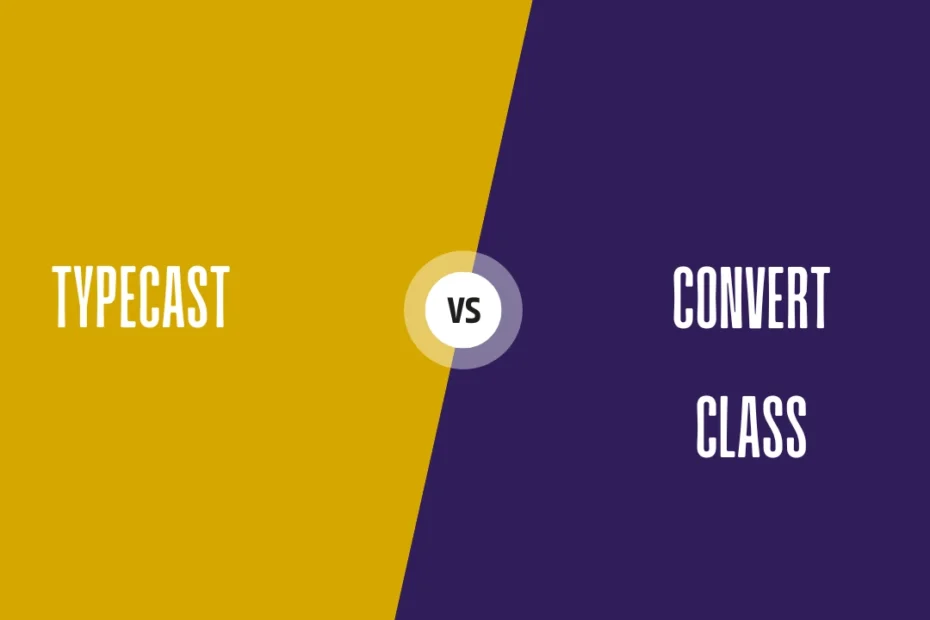In C#, both type casting and the Convert class are used to perform conversions between different data types, but they have some key differences in how they work and what scenarios they are best suited for. Here is the difference between Typecast and Convert class in c#:
Difference Between Typecast and Convert class in c#
Type Casting in C#
Type casting involves converting a value from one data type to another. It’s often used when you’re confident that the conversion will succeed and that the data being converted is compatible with the target data type. There are two types of casting: explicit casting (also known as casting) and implicit casting (also known as widening).
Explicit Casting: This is done using the cast operator. It’s used when there’s a potential loss of data or precision during the conversion. For example:
double pi = 3.14159;
int approxPi = (int)pi; // Explicit cast, value becomes 3Implicit Casting: This is automatic and occurs when there’s no loss of data or precision during the conversion. For example:
int num = 42;
double numDouble = num; // Implicit cast, no data lossConvert Class
The Convert class in C# provides static methods to convert base data types to other base data types. It’s a safer way to perform conversions because it handles potential exceptions that might occur during the conversion process. The Convert class primarily focuses on converting between common numeric and string types.
int intValue = 42;
string intString = Convert.ToString(intValue); // Converts int to stringDifferences
- Error Handling: Type casting can lead to exceptions if the conversion is not possible (e.g., casting a string to an int if the string is not a valid integer). The
Convertclass, on the other hand, provides more robust error handling and can handle various conversion scenarios without causing exceptions. - Applicability: Type casting is often used for direct type conversions where you’re sure about the compatibility between the source and target types. The
Convertclass is more focused on converting between common data types, especially for numeric and string conversions. - Usability: Type casting is a language feature and can be used for direct conversions, while the
Convertclass provides a consistent way to perform conversions and offers more control over error handling. - Complex Conversions: If you’re dealing with complex data types or custom conversions, you’ll likely need to implement your own conversion methods. In such cases, the
Convertclass may not be suitable, and you’ll need to use custom logic.
Conclusion
- Type casting in C# is suitable for simple, direct conversions between compatible types.
- The
Convertclass is more suitable for converting between common numeric and string types with better error handling and consistency. It’s particularly useful when you want to handle conversion errors gracefully.
